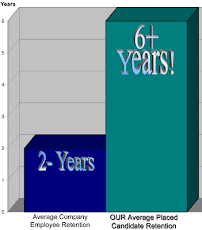
A friend recently confided in me saying, “This down market has me scared. I can’t sleep at night. I don’t know if my business will be here three months from now.”
Certainly, some anxiety about this economic crisis is normal and expected. Some people, however, have become emotionally hijacked, gripped with a fear of spiraling downward.
Living chronically in a state of fear can over-tax our system and set the stage for many health problems. Here are some signs that you’re living in chronic fear:
• Looking for ways to flee your situation
• Unusual amount of anger
• Emotionally frozen
• Feelings of imminent or approaching doom
• Loss of optimism
• Anxiety in response to real or imagined events
• Self-preoccupation or withdrawing from relationships
• Selling off investments and taking huge losses, when selling is not a necessity
It is possible to change how you cope with distressing events. You can experience stress and fear without getting consumed by it.
Counteracting fear and stress
Below are five tips to maintain emotional balance in times of fear and stress.
Maintain perspective. Balance out the negative with something positive. Opportunities exist everywhere for people who maintain perspective. Don’t deny the reality of the situation but try to see the positive aspects and opportunities in the change taking place.
Practice self-care. Different stress-management techniques work for different people. Pick and choose from the following and see what works best for you: prayer, mediation, exercise, gardening, yoga, poetry, pleasure reading, to name a few. Whatever you choose, find a way to make it a part of your daily practice.
Know thyself. Much of the fear prevalent during a recession is based around our financial situation. Get to know your relationship with money. Often it comes from childhood experiences that created an emotional connection with money. Did your parents ever tell stories or say things like: “Don’t be a financial failure like your uncle” or “Happy and successful people are wealthy”? These influences operate mostly out of our awareness and, if left unchecked, make us especially vulnerable in times of economic crisis. Take time to understand your money story. Consider working with a coach on this project.
Develop appreciation. We are all more than the sum of our material possessions. All the literature on happiness boils down to one thing: happiness is a measure of appreciation that goes beyond the financial. Develop and practice your appreciation for all things non-financial.
Turn to others. Lean on others for advice, feedback and support. Your colleagues at offer a tremendous resource. Don’t ignore their words. Spouses, friends, other family members and even consultation with a licensed therapist can offer the glue you might need to hold yourself together.
We live in tough times. Now is the time to find and practice skills that can help us stay balanced. These skills can act as our hedge against fear. -
Dr. Eric Weiner is a speaker and consultant who helps families and organizations with the psychological and relationship issues associated with wealth, leadership and values-based legacy planning. For more information see www.familylegacyadvisor.com.














No comments:
Post a Comment